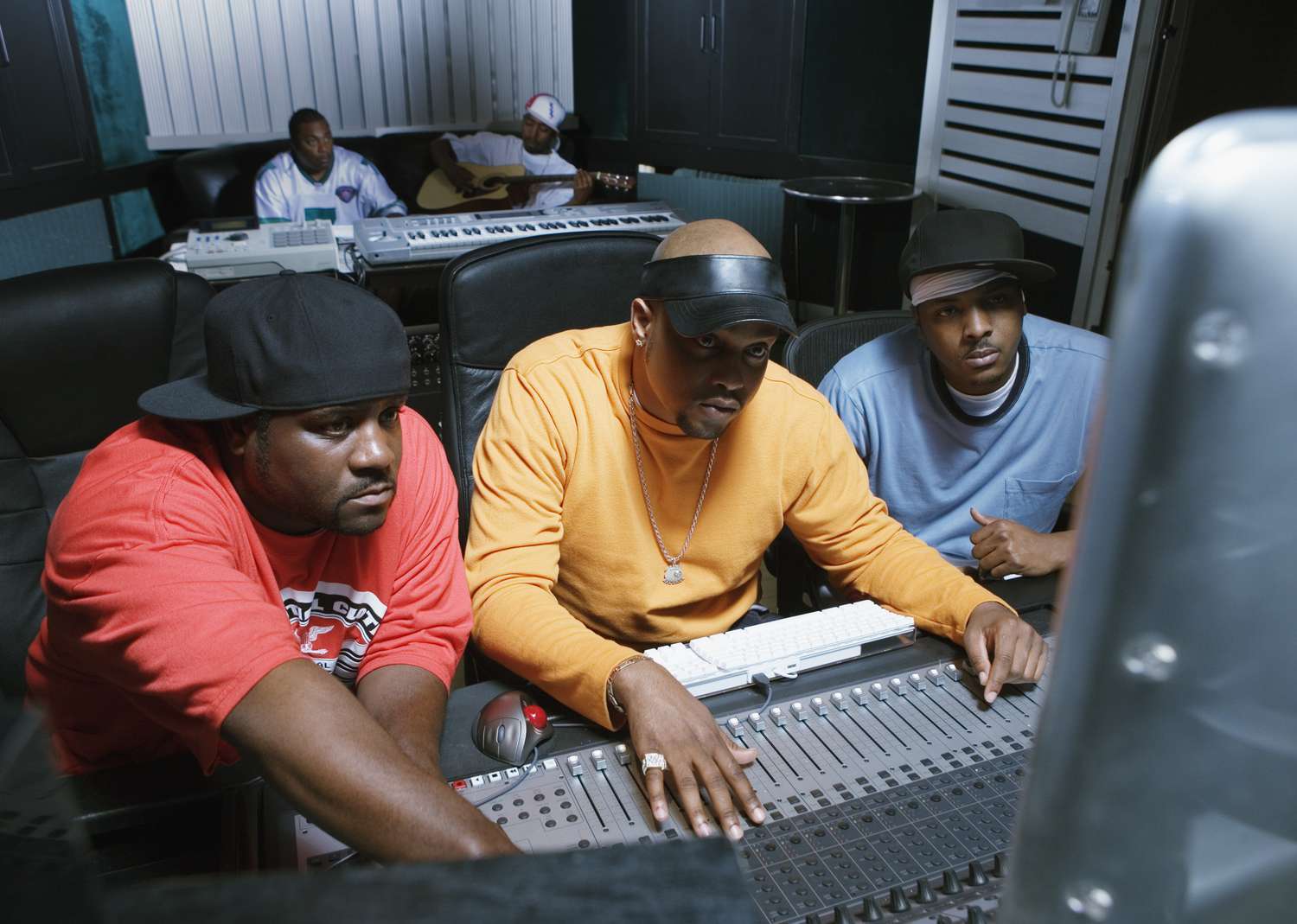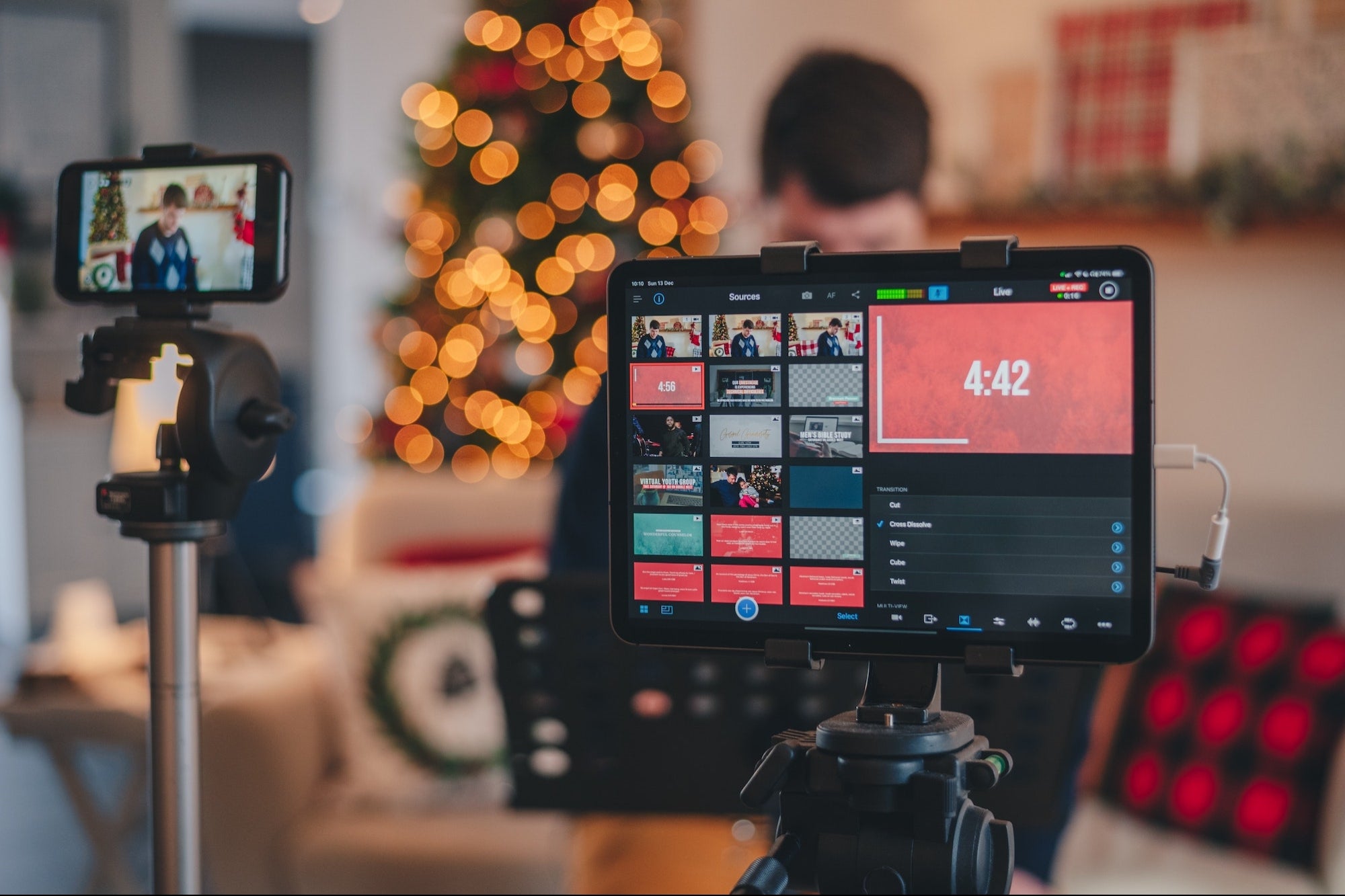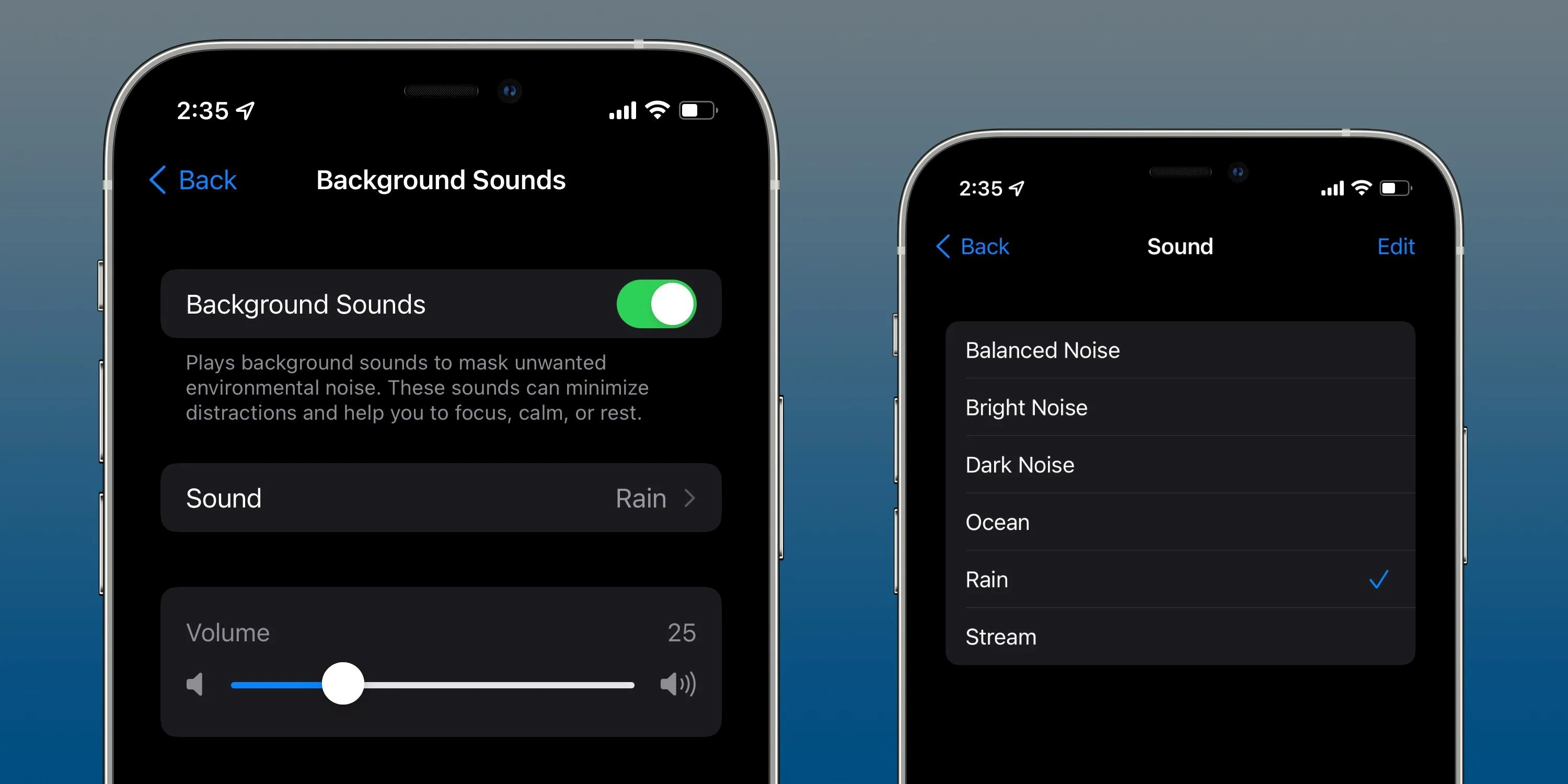Home>Production & Technology>Background Music>How To Get Background Music For A Rap


Background Music
How To Get Background Music For A Rap
Modified: January 22, 2024
Looking for background music for your rap? Learn how to find and select the perfect beats to enhance your rap tracks.
(Many of the links in this article redirect to a specific reviewed product. Your purchase of these products through affiliate links helps to generate commission for AudioLover.com, at no extra cost. Learn more)
Table of Contents
Introduction
Background music plays a crucial role in enhancing the overall experience and impact of any rap song. It sets the tone, creates the mood, and adds depth to the lyrics and delivery. Whether you’re a seasoned rapper or just starting out, finding the right background music for your rap can be a challenging but rewarding process. In this article, we will explore various methods and sources to help you find the perfect background music for your rap tracks.
Music is a powerful storytelling tool, and choosing the right background music can elevate your rap lyrics to another level. The right melody, rhythm, and instrumentation can bring out the emotions and enhance the message you want to convey in your rap.
When it comes to selecting background music for your rap, there are several factors to consider. You want to find music that complements your style, showcases your unique voice, and enhances the overall impact of your lyrics. It’s essential to strike a balance between the music and the vocals, ensuring they work harmoniously together.
To help you on your quest for the perfect background music, we will explore various methods and sources that you can leverage. From music libraries to collaborating with producers and utilizing royalty-free music websites, there are plenty of options available to suit your needs and budget. We will also discuss licensing requirements, customization options, and considerations for mixing and mastering. Furthermore, we will touch on copyright and legal considerations to ensure you are using music legally and protecting your work.
Whether you’re a seasoned rapper looking for fresh sounds or a newbie searching for the right background music to make your mark, this article will guide you through the process and provide valuable insights on how to find the ideal background music for your rap tracks.
Finding the Right Background Music
When it comes to finding the perfect background music for your rap, there are several avenues you can explore. Here are some effective methods to help you discover the right music that aligns with your artistic vision:
- Explore Music Libraries: Music libraries are a treasure trove of tracks that can be licensed for use in your rap songs. These libraries offer a wide range of genres and styles, allowing you to find the music that complements your rap lyrics. Websites like AudioJungle, Epidemic Sound, and PremiumBeat are popular choices for finding high-quality background music tracks.
- Collaborate with Producers: Building connections with talented producers can open doors to a wealth of original and custom-made background music. Working with a producer allows you to create music tailored specifically to your rap style and lyrical content. Collaborating with producers also fosters a collaborative spirit, resulting in a seamless fusion of music and vocals.
- Utilize Royalty-Free Music Websites: Royalty-free music websites offer a vast selection of tracks that can be used without the need for licensing fees. Websites like YouTube Audio Library, Free Music Archive, and SoundCloud’s Creative Commons section are great resources to explore. Just ensure that you read and understand the licensing terms and attribution requirements.
- Assess Licensing Requirements: It’s essential to understand the licensing requirements for the music you choose. Some tracks may require a one-time licensing fee, while others may be available under a Creative Commons license. Make sure you abide by the licensing terms and give proper credit if required.
- Customize Background Music: If you have a specific vision or theme for your rap, you may consider customizing the background music. Working with a composer or producer, you can create a unique sound that captures the essence of your message and enhances the impact of your lyrics. This personalized touch can help your rap stand out from the crowd.
Remember, the key is to find background music that not only aligns with your style but also complements your rap lyrics and enhances the emotions and message you want to convey. Take the time to explore different options and collaborate with talented individuals to create a musical backdrop that truly represents your artistic vision.
Exploring Music Libraries
Music libraries offer a vast collection of pre-made tracks that can be licensed for use in your rap songs. These libraries cater to a wide range of genres and styles, making it easier to find the perfect background music that aligns with your artistic vision. Here are some tips for exploring music libraries:
- Research and Compare: Before diving into a specific music library, it’s essential to do some research and compare different platforms. Look for libraries that specialize in the type of music you’re looking for and have a good reputation for high-quality tracks. Reading reviews and listening to sample tracks can help you gauge the overall quality and suitability of the library.
- Browse by Genre and Mood: Music libraries often categorize tracks based on genre and mood, making it easier to navigate and find the right background music for your rap. Explore different genres and sub-genres that resonate with your artistic style and browse through tracks that evoke the desired mood for your song.
- Listen to Sample Tracks: Most music libraries provide sample tracks that you can listen to before making a purchase or licensing decision. Take the time to listen to these samples and assess their compatibility with your rap lyrics. Pay attention to the instrumentation, rhythm, and overall vibe of the track to ensure it complements your vocals.
- Consider Licensing Options: Music libraries offer different licensing options, ranging from one-time fees to subscription-based models. Determine your budget and evaluate the licensing terms offered by the library. Some libraries may allow you to use the track for commercial purposes, while others may have restrictions. Make sure you understand the licensing terms and choose accordingly.
- Read Reviews and Ratings: To gain insights into the quality and usability of tracks in a music library, read reviews and check ratings provided by other users. This can help you identify libraries that consistently deliver high-quality background music suitable for rap songs.
- Stay Organized: As you explore different music libraries, it’s important to stay organized. Create a system to keep track of the tracks you like, licensing terms, and any additional information. This will make the selection and licensing process much smoother.
Exploring music libraries is an excellent way to find a wide range of background music options for your rap songs. Take the time to explore different libraries, listen to sample tracks, and consider your licensing needs to find the perfect music that enhances your rap lyrics and brings your artistic vision to life.
Collaborating with Producers
Collaborating with talented producers can offer a unique and customized approach to finding the right background music for your rap. Working with a producer allows you to create music that is specifically tailored to your style, lyrics, and artistic vision. Here are some key points to consider when collaborating with producers:
- Find the Right Producer: Look for producers who specialize in the genre or style of rap you’re pursuing. Research their previous work to determine if their musical style aligns with your vision. Building a strong rapport with a producer who understands your artistic direction is essential for a successful collaboration.
- Communicate Your Vision: Clearly express your vision and expectations to the producer. Share your rap lyrics, explain the emotions you want to convey, and discuss any specific musical elements or themes you envision. Effective communication is key to ensure that the producer understands your needs and can create music that complements your rap.
- Be Involved in the Creative Process: Collaborating with a producer doesn’t mean handing over complete control. Stay actively involved in the creative process, providing feedback and suggestions while respecting the expertise and creative decisions of the producer. This collaborative approach will help in creating music that truly represents your style and artistic vision.
- Experiment and Explore: Working with a producer gives you the opportunity to experiment with different sounds, melodies, and rhythms. Don’t be afraid to step out of your comfort zone and explore new musical directions. This creative exploration can result in unique and captivating background music that sets your rap apart.
- Set Clear Expectations: Discuss the timeline, budget, and any other logistics upfront to avoid any misunderstandings later on. Clarify the terms of ownership and royalty splits if applicable. Having a transparent and well-defined agreement in place ensures both parties are on the same page throughout the collaboration.
- Stay Open to Feedback: Collaboration is a two-way street, and it’s important to be open to feedback from the producer. They may suggest tweaks or changes that can enhance the overall sound and impact of the background music. Embrace constructive criticism and be willing to make adjustments as necessary.
Collaborating with producers not only allows you to create custom-made background music but also fosters a valuable creative synergy. By working together, you can create music that perfectly complements your rap style, amplifies your lyrics, and brings your artistic vision to life. The producer’s expertise combined with your unique talent as a rapper can result in an exceptional musical collaboration that resonates with your audience.
Using Royalty-Free Music Websites
Royalty-free music websites offer a convenient and cost-effective option for finding background music for your rap songs. These websites provide a vast selection of tracks that can be used without the need to pay ongoing royalties. Here’s what you need to know about using royalty-free music websites:
- Choose Reputable Websites: Start by selecting reputable royalty-free music websites that offer high-quality tracks. Some popular options include YouTube Audio Library, Free Music Archive, and SoundCloud’s Creative Commons section. These platforms curate a wide range of music genres, allowing you to find the right background music for your rap.
- Understand Licensing Terms: Each royalty-free music website has its own licensing terms. Some tracks may be available under a Creative Commons license, allowing you to use them for free with certain attribution requirements. Others may require a one-time licensing fee. Read and understand the licensing terms for each track you plan to use to ensure compliance.
- Explore Different Genres: Royalty-free music websites offer a diverse array of music genres and styles. Take the time to explore different genres to find the music that aligns with your rap’s mood, tone, and lyrical content. Experimenting with different genres can open up new creative possibilities and add a unique touch to your rap songs.
- Preview Sample Tracks: Most royalty-free music websites allow you to preview sample tracks before making a licensing decision. This allows you to listen to the music and assess its compatibility with your rap vocals and overall style. Pay attention to the instrumentation, tempo, and overall feel of the track to ensure it complements your lyrics.
- Review User Ratings and Reviews: User ratings and reviews can provide valuable insights into the quality and usability of tracks on royalty-free music websites. Take the time to read reviews and check ratings to understand the experiences of other users. This can help you identify tracks that are well-received and suitable for your rap songs.
- Stay Organized: As you browse through different tracks on royalty-free music websites, it’s important to stay organized. Create playlists or folders to keep track of the tracks you’re interested in, along with any licensing and attribution requirements. This will make it easier to manage the licensing process and ensure compliance with the terms.
Using royalty-free music websites can be a cost-effective and convenient option for finding background music for your rap. Whether you’re looking for energetic beats, soulful melodies, or atmospheric soundscapes, these platforms provide a vast selection of tracks to fulfill your creative needs. Just make sure to understand the licensing terms, give proper attribution when necessary, and enjoy the freedom of using high-quality music without ongoing royalty obligations.
Assessing Licensing Requirements
When using background music for your rap songs, it’s important to understand the licensing requirements associated with the tracks you choose. Here are some key considerations when assessing licensing requirements:
- Identify the Type of License: Different tracks may have different licensing options. Some tracks may be available under a Creative Commons license, allowing you to use them for free with proper attribution. Others may require a one-time licensing fee or a subscription-based model. Determine the type of license required for the music you want to use.
- Read and Understand the License Terms: Take the time to read and understand the license terms for each track. Look for any restrictions on how you can use the music, such as limitations on commercial use or the need for additional clearances for specific platforms or purposes. Make sure you comply with the terms and conditions set forth by the license.
- Consider Attribution Requirements: Some music licenses may require attribution, meaning you need to give credit to the original artist or composer in your rap song or accompanying materials. Understand the specific attribution requirements and ensure you provide the necessary credit as per the licensing terms.
- Evaluate Commercial Use: If you plan to use your rap song for commercial purposes, such as selling it or using it in marketing campaigns, ensure the music you choose allows for commercial use. Some licenses may restrict the use of the music for commercial gain, so it’s important to clarify this aspect before proceeding.
- Consult with Legal Professionals: If you have any doubts or concerns regarding licensing requirements, it’s advisable to consult with legal professionals who specialize in music and copyright law. They can guide you on the specific legalities involved and ensure that you are using the background music in a lawful manner.
Assessing licensing requirements is crucial to ensure that you are using background music in compliance with the law and the terms set forth by the license. By understanding the license type, reading and comprehending the terms, and fulfilling any attribution requirements, you can use the music confidently in your rap songs while respecting the rights of the original artists and composers.
Customizing Background Music
Customizing background music can add a unique touch to your rap songs and make them stand out from the crowd. Here are some tips for customizing background music to suit your artistic vision:
- Work with a Composer or Producer: Collaborating with a composer or producer gives you the opportunity to create custom-made background music that perfectly complements your rap style. Discuss your vision, lyrics, and desired emotions with them to craft a musical backdrop that enhances the impact of your rap.
- Discuss Musical Elements: Communicate your preferences regarding specific musical elements such as tempo, melodies, instrumentation, and overall vibe. Share reference tracks or examples that capture the sound you envision for your rap. This will guide the composer or producer in creating music that aligns with your artistic direction.
- Experiment with Instrumentation: Consider exploring different instruments to create the desired mood and atmosphere for your rap. From traditional instruments to virtual instruments and synthesizers, the choice of instrumentation can add depth and texture to your background music. Collaborate with the composer or producer to find the right combination.
- Modify Rhythm and Beats: The rhythm and beats in your background music have a direct impact on the flow and energy of your rap. Experiment with different rhythms, drum patterns, and percussion elements to create a groove that complements your vocal delivery. This customization can make your rap tracks more dynamic and captivating.
- Add Unique Sound Effects: Incorporating unique sound effects can further enhance the texture and ambiance of your background music. Experiment with atmospheric sounds, vocal samples, or unconventional elements that add personality to your rap. These sound effects can help create memorable moments within your songs.
- Consider Dynamic Changes: Utilize dynamic changes in your background music to amplify the impact of your rap lyrics. Build-ups, breakdowns, and transitions can create tension, highlight important moments, and add a sense of movement and progression to your rap. Collaborate with the composer or producer to craft these dynamic changes effectively.
Customizing background music allows you to create a musical backdrop that is tailored specifically to your rap style and lyrical content. By working with a composer or producer, discussing musical elements, experimenting with instrumentation and rhythm, adding unique sound effects, and considering dynamic changes, you can create background music that elevates your rap to new heights of artistic expression.
Considerations for Mixing and Mastering
Mixing and mastering are crucial steps in the production process of your rap songs. These processes ensure that the background music and vocals blend seamlessly, resulting in a polished and professional sound. Here are some considerations for mixing and mastering your rap tracks:
- Balance the Levels: Achieving a balanced mix is essential to ensure that the background music and vocals are heard clearly. Pay attention to the levels of each element in your mix, adjusting them to create the desired balance. Make sure the vocals are prominent and easily understandable without overpowering the background music or being overshadowed by it.
- EQ and Enhance Frequencies: Use EQ (equalization) to enhance the frequencies of both the background music and vocals. This allows you to make certain elements stand out or reduce any unwanted resonances. It’s important to find the right balance to create a cohesive and clear sound where each element has its own space in the mix.
- Add Depth with Effects: Utilize effects such as reverb, delay, and modulation to add depth and character to your mix. These effects can create a sense of space and ambiance, making your rap sound more immersive and engaging. Experiment with different settings to achieve the desired effect without overwhelming the vocals.
- Pan Instruments and Vocals: Panning elements left or right in the stereo field can create a sense of width and separation. Try panning individual instruments or vocal tracks to different positions in the stereo spectrum to make them stand out and create a more spacious mix.
- Consider Compression and Dynamics: Properly applying compression can help control the dynamics in your mix and ensure that the volume levels stay consistent. Use it to tame any peaks and bring up any quieter elements. Find the right balance to maintain the energy and impact of your rap while ensuring a controlled and polished sound.
- Mastering for Clarity and Loudness: Mastering is the final step in the production process, where the entire mix is processed to achieve a cohesive and balanced final sound. Mastering helps to enhance the overall clarity, dynamics, and loudness of your rap songs. Consider consulting with a mastering engineer or use mastering software to ensure a professional and commercial-quality final product.
Properly mixing and mastering your rap tracks is essential to ensure that the background music and vocals shine together as a cohesive whole. Pay attention to the balance, EQ, depth, panning, compression, and dynamics in your mix, and consider professional mastering to achieve a polished and impactful final sound for your rap songs.
Copyright and Legal Considerations
When using background music for your rap songs, it’s crucial to be aware of copyright and legal considerations to protect your work and respect the rights of others. Here are some important factors to keep in mind:
- Understand Music Copyright: Music, including background tracks, is protected by copyright laws. This means that the original creator holds exclusive rights to their work, including the right to reproduce, distribute, and publicly perform it. It’s important to obtain the necessary permissions or licenses to use copyrighted music legally.
- Use Royalty-Free or Creative Commons Music: Royalty-free music and Creative Commons-licensed music are excellent options when you’re looking for background tracks that can be used without infringing on copyright. Ensure you understand the specific terms of each license and comply with any attribution requirements.
- Protect Your Own Work: Just as you respect the rights of others, it’s important to protect the copyright of your own rap songs. Consider registering your original compositions with the appropriate copyright office in your country. This provides legal proof of your ownership and can strengthen your position if any infringement occurs.
- Seek Legal Advice: If you have any concerns or uncertainties about the copyright or legal aspects of using background music for your rap, it’s advisable to consult with a legal professional who specializes in music and copyright law. They can provide guidance specific to your situation and ensure that you are in compliance with the law.
- Give Proper Attribution: When using Creative Commons-licensed music or music with specific attribution requirements, make sure you give proper credit to the original artist or composer. This can typically be done through including the necessary information in the credits or description of your rap song.
- Monitor Copyright Infringement: Keep an eye out for any unauthorized use of your own rap songs and take appropriate action if you discover copyright infringement. File a takedown notice or seek legal recourse as needed to protect your rights.
Respecting copyright and legal considerations when using background music is essential for both the protection of your own work and the recognition of the rights of other artists. By understanding and complying with copyright laws, using royalty-free or Creative Commons-licensed music, seeking legal advice if needed, and properly attributing the work of others, you can ensure that your use of background music is legally sound and ethical.
Conclusion
Choosing the right background music for your rap songs is a crucial aspect of creating a compelling and impactful musical experience. By exploring different avenues such as music libraries, collaborating with producers, utilizing royalty-free music websites, and customizing your background music, you can find the perfect sound that aligns with your artistic vision.
When selecting background music, it is important to consider licensing requirements and ensure that you are using the music legally and ethically. Assess the type of license needed, understand the terms and conditions, and comply with any attribution requirements to respect the rights of the original artists and composers.
Additionally, mastering the art of mixing and mastering is crucial to achieving a polished and professional sound. Balancing the levels, enhancing frequencies, adding depth with effects, and considering dynamics will contribute to an immersive listening experience for your rap songs.
Finally, it is crucial to be mindful of copyright and legal considerations. Understand music copyright, use royalty-free or Creative Commons-licensed music when appropriate, protect your own work, and give proper attribution to others. Seeking legal advice when needed can provide further guidance and ensure that you are in compliance with the law.
In conclusion, the process of finding the right background music for your rap songs requires creativity, research, and attention to detail. By understanding the different avenues available, customizing the music to suit your style, and abiding by copyright and legal considerations, you can create rap songs that captivate listeners and showcase your unique artistic talent.











